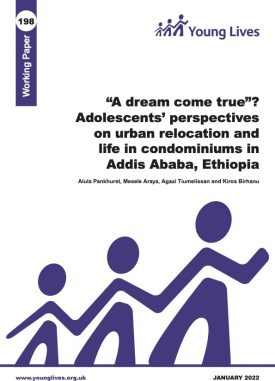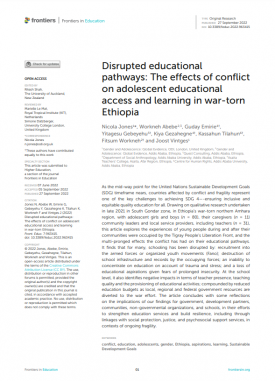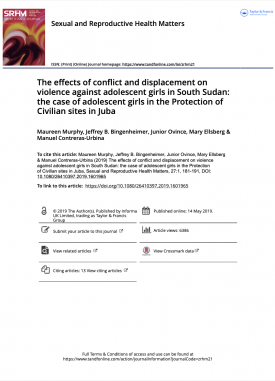Despite the far-ranging direct effects of armed conflict on daily life, physical health, and economic outcomes, there is limited evidence on its impacts on social and political outcomes, and even less evidence on its impacts on adolescents, despite this being a pivotal life-stage. This paper seeks to address this critical gap in the literature by exploring the effects of armed conflict in northern Ethiopia that lasted from 2020 to 2022 on adolescents’ social capital, including their peer networks, relationships with trusted adults, and sense of belonging to their community and polity.
The paper draws on quantitative research that book-ended the 2020–2022 armed conflict in the north of the country, as well as qualitative interviews that were conducted before, during, and after that period. We find that adolescents’ bonding social capital (especially relationships with peers and community members) is generally enhanced post-conflict due to a sense of common purpose.
Suggested citation
Woldehanna, T., Endale, K., Das, S., Yadete, W., Vintges, J., Baird, S., … and Hamory, J. (2024). ‘Armed conflict and adolescent social capital in Ethiopia’ International Journal of Disaster Risk Reduction: 104299 (https://doi.org/10.1016/j.ijdrr.2024.104299)


